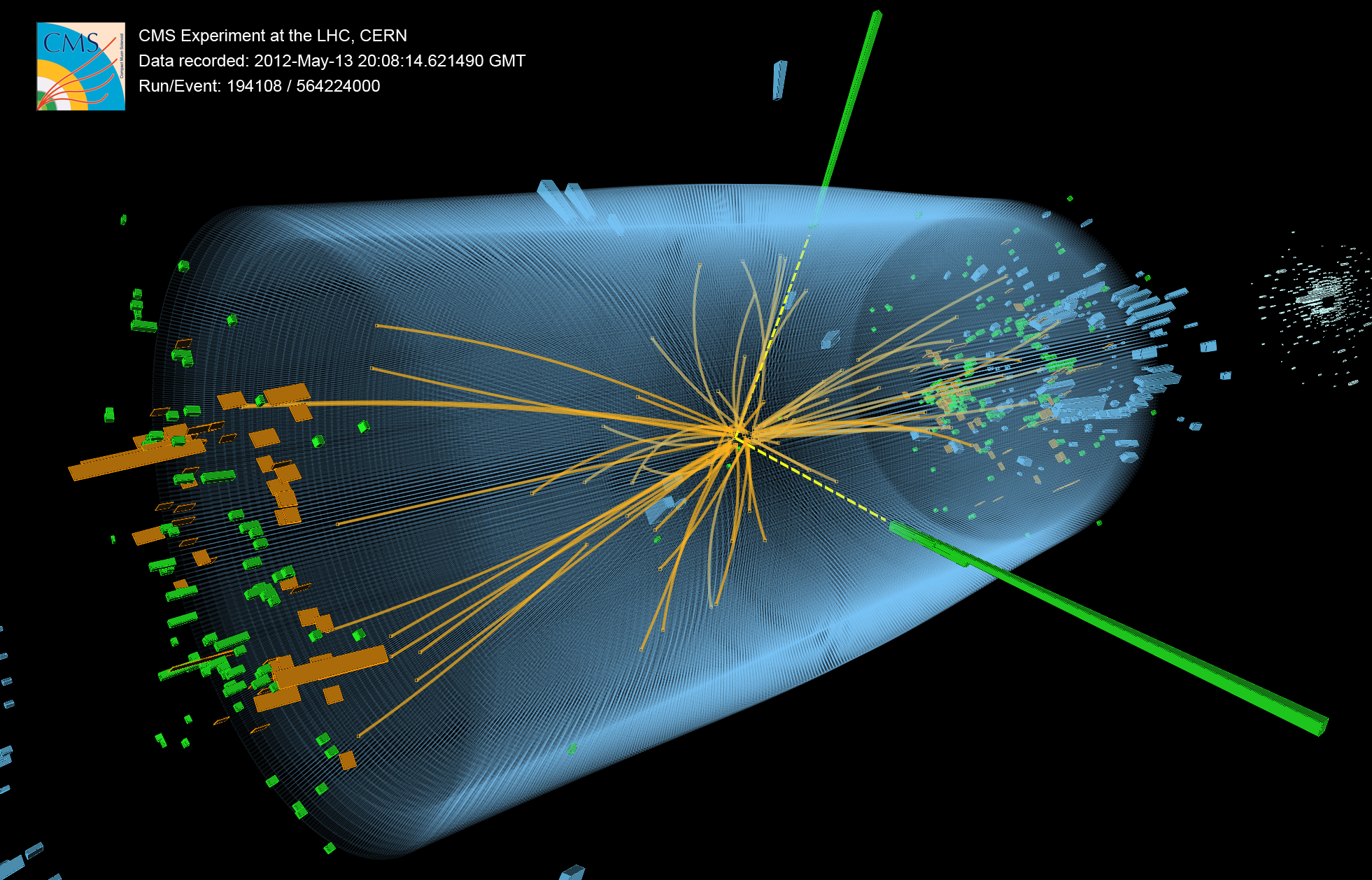
Cern detects new ‘Higgs-like’ particle

Scientists at the Cern research centre on the Swiss-French border have discovered a new particle that could be the elusive Higgs Boson – crucial in understanding how the Big Bang gave rise to stars, planets and even life.
“We have a discovery. We have observed a new particle consistent with the Higgs Boson – which one? That remains open,” Cern Director General Rolf Heuer told a seminar at the European Organization for Nuclear Research in Geneva on Wednesday.
“This is indeed a new particle. We know it must be a boson and it’s the heaviest boson ever found. This is a preliminary result, but we think it’s very strong and very solid,” said Joe Incandela, spokesman for one of the two Cern teams hunting for the Higgs.
Physicists have been smashing particles together at near light-speed in the underground Large Hadron Collider (LHC) – the world’s most powerful particle accelerator – near Geneva since 2010, creating high-energy collisions of protons to investigate dark matter, antimatter and the creation of the universe, which many theorise occurred in a massive explosion known as the Big Bang.
Amongst the huge amount of data produced by the LHC experiments, researchers have already seen tantalising hints of the Higgs Boson, the so-called “God particle” believed to be the missing piece of the fundamental theory of physics known as the Standard Model, which were reported by Cern in December 2011.
Since then power in the LHC had been ramped up and the rate of the particle collisions in it tripled in the search for the Higgs.
In December, the Atlas and CMS teams at Cern, which comprise some 5,000 scientists, reported what appeared to be hints of a Higgs particle weighing about 125gigaelectronvolts (GeV), roughly 130 times heavier than a proton.
On Wednesday, that evidence became overwhelming. The Atlas team reported a particle at 126.5GeV with a confidence of five sigma, while the CMS team found a particle with a mass of 125.3 GeV with a 4.9 sigma confidence.
A “5 sigma” certainty constitutes a discovery in scientific terms – or to be sure that there is less than a one in a million chance it is a fluke.
“As a layman I would now say I think we have it,” said Heuer, referring to the Higgs.
Standard Model
For particle physicists, finding the elusive Higgs Boson is key to confirming the Standard Model that explains what gives mass to matter and by extension how the universe was formed.
Without the Higgs particle, the particles that make up the universe would have remained like a soup, the theory goes.
It is unclear from the latest findings whether the particle they have discovered is the Higgs as described by the Standard Model, a variant of the Higgs or an entirely new subatomic particle that could force a rethink on the fundamental structure of matter.
Heuer described today’s findings as a “milestone in our understanding of nature”.
“The discovery of a particle consistent with the Higgs Boson opens the way to more detailed studies, requiring larger statistics, which will pin down the new particle’s properties, and is likely to shed light on other mysteries of our universe,” he added.
At the end of the announcement, the seminar room held a standing ovation. Peter Higgs, one of the six physicists who first proposed the theory in 1964, wiped a tear from his eye.
“It’s an incredible thing that it’s happened in my lifetime,” he declared.
In the Large Hadron Collider, high-energy protons in two counter-rotating beams are smashed together to search for exotic particles.
The beams contain billions of protons. Travelling just under the speed of light, they are guided by thousands of superconducting magnets.
The beams usually move through two vacuum pipes, but at four points they collide in the hearts of the main experiments, known by their acronyms: ALICE, ATLAS, CMS, and LHCb.
When operational, the detectors see up to 600 million collision events per second, with the experiments scouring the data for signs of extremely rare events such as the creation of the so-called God particle, the yet-to-be-discovered Higgs boson.

In compliance with the JTI standards
More: SWI swissinfo.ch certified by the Journalism Trust Initiative





























You can find an overview of ongoing debates with our journalists here . Please join us!
If you want to start a conversation about a topic raised in this article or want to report factual errors, email us at english@swissinfo.ch.